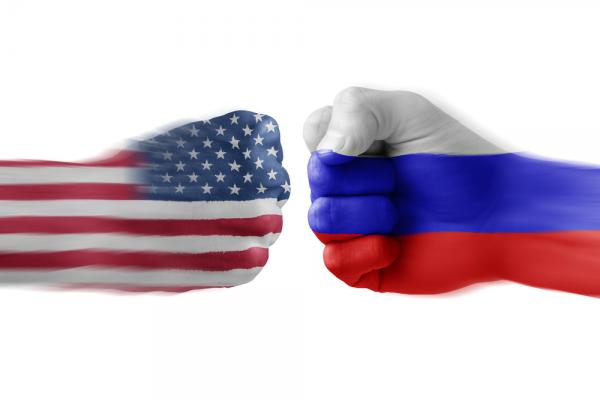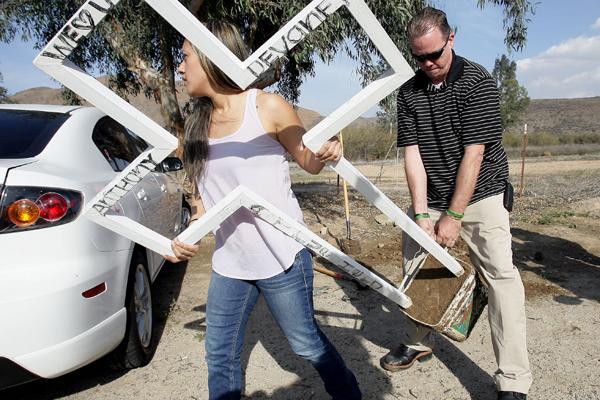It’s sometimes cliché for Christians to warn about the dangers of idolizing wealth and money, but the negative impact it can have on our faith is often more subtle than we realize. Here are a few ways it covertly manipulates our spirituality
The news coverage of international conflicts can be very disappointing from a mimetic perspective. When conflicts escalate into violence as in Syria or the Ukraine, news outlets rush to cover the hostilities. They give us the facts on the ground, or rumors thereof, accompanied by an almost mindless report of what each side is saying by way of self-justification. However, if you listen to their rhetoric with mimetically tuned ears, which happens after spending time here at Raven, you realize that their rhetoric is all sound and fury signifying nothing. Unfortunately, it is this “nothing” that usually makes the headlines.
Major outlets like the New York Times rarely give as good an analysis as my colleague Adam Ericksen did last week. Speaking of the crisis in Ukraine, Adam said that we often think conflict is the result of differences. But the truth is that rivals resemble each other in often surprising ways. They are in conflict because they share the same desires and so are locked in a competition for something that they cannot or will not share. In the case of the conflict over Crimea, the “thing” is not the region but power and prestige. Adam explains:
Russia’s desire for power is mimetic, or imitative, and modeled on its rival for power, the United States. Russia wants what the United States has — the prestige of being a global super power — and Russia is willing to use the same methods that the United States has used to gain and sustain that prestige — violence.
Many Malaysians are invoking the power of prayer to aid the massive multinational search operation for the Malaysia Airlines plane that disappeared without a trace early Saturday.
On Sunday, a former Malaysian prime minister joined multifaith groups for prayers at the Kuala Lumpur International Airport, where Flight 370 took off for Beijing. Prayers have continued across Malaysia, where Muslims make up the majority of the population, and significant numbers of ethnic minorities, including Chinese and Indians, follow other religions.
And church news is little different: pastor so-and-so is embroiled in a moral failing; church such-and-such fired its pastor over leadership differences; and the seminary down the street let go a professor over theological issues. The list goes on and on.
Isn’t it time for something different?
How about a little good news? What about a viral campaign about churches doing well? Well, here is my modest attempt to say a good word about our church community.
A California resort town, already reeling from a legal fight over the placement of memorial crosses at a minor league baseball stadium, is now engaged in another round of bitter acrimony over the display of crosses on public land.
Not long after, another family appeared at the scene to erect six smaller wooden crosses at the same site. Each bore a handwritten message, including “What if this was your child?”, “To each his own,” and “Get a life.”
In a small college town 20 miles north of Charlotte, N.C., “Homeless Jesus” is provoking more conversation than a month of Sunday sermons.
The hollow, bronze piece bolted to the park bench is a $22,000 gift from a church member intended to support public art.
That’s a small price to pay to get people thinking about what it means to be a Christian — and what it means for “Homeless Jesus” to take up residence in a community of 270 townhomes and single-family homes, said the Rev. David Buck, the rector of St. Alban’s.
Last week during my Sunday school class, one of my second graders asked, “How can we go to heaven, if we continue to sin?”
As usual, I am often stunned and quieted by the striking questions that come from the mouths of young people.
I usually respond to the inquisitive questions from my Sunday School students by reiterating what I have been told by many a Sunday School teacher: “Even though we break our promises, God doesn’t; God promised us if we believe in God and that God’s Son Jesus died for our Sins, we will go to heaven — even when we mess up.”
While that seems like a really ‘simple’ explanation of one of many biblical truths, it is still striking and amazing that even though we continue to ‘mess up,’ God has not retracted on God’s promise of offering us a beautiful ending to the troubled world we live in today.
As I think about Romans 8:21 and how it speaks to the fact that “creation itself will be liberated from its bondage to decay and brought into the freedom and glory of the children of God,” I get excited. Not only because we all will see the glory of God one day, but that the bondage and decay we are experiencing in our physical world will end in Glory!


![Friday prayer inside the Masjid Negara mosque in Kuala Lumpur, Malaysia. Photo: Alfianamy[Public domain], via Wikimedia Commons](https://sojo.net/files/styles/large_rectangle_crop/public/blog/Inside_masjid_negara-427x320.jpg)



